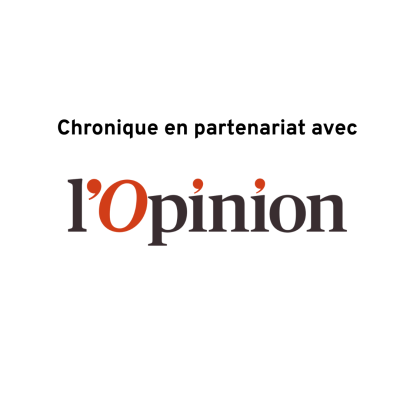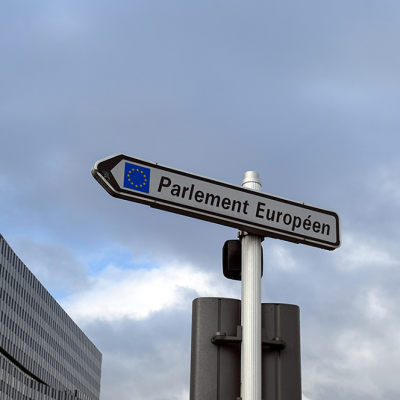
Citer cet article :
Maillard, S. 2023. « Élection à l’horizon », Blogpost, Paris: Institut Jacques Delors , 5 mai.
Édito → Lire tout
Fixer à 27 les dates des élections européennes, c’est comme chercher à s’entendre sur les congés dans une réunion de service : chacun a sa raison pour s’en tenir à tel jour plutôt qu’un autre. Entre traditions électorales et jour fériés propres à chaque pays, la tenue du scrutin européen oscille encore entre fin mai et début juin 2024. Quels que soient les jours de vote finalement retenus, les européennes vont se jouer peu ou prou dans un an.
Au juste, qu’est-ce qui se joue derrière le renouvellement de 705 députés européens pour cinq ans au suffrage universel direct et des nominations aux plus hauts postes de l’Union ? A un an d’avance et en ces temps si mouvants, il serait hasardeux de se prononcer. Pour autant, les instances partisanes cherchent une idée-force, un thème mobilisateur et une tête de liste. Des formations mesurent l’opportunité de partir groupés ou au contraire entendent s’affirmer seules. La présidente de la Commission, Ursula von der Leyen, évalue les soutiens avant de se représenter, comme l’y pousse son propre parti outre-Rhin. En France, le parti présidentiel espère remobiliser sa base pro-européenne pour des élections, qui risquent de tourner en référendum sur Macron. Star de l’événement démocratique, le Parlement européen en fera un vote de confiance envers une institution éclaboussée par l’interminable scandale du Qatargate. La saison 3 de la truculente série télévisée Parlement est, elle, prête pour diffusion à la rentrée septembre.
La pré-campagne est donc commencée et les termes du débat, en train de se définir. Plusieurs facteurs vont les façonner. D’abord, à l’évidence, la guerre en Ukraine et la défense européenne. Selon que la contre-offensive ukrainienne, jugée imminente, aura changé ou non la donne sur un front enlisé depuis des mois, selon qu’une victoire apparaîtra à portée de munitions, la reconstruction à portée de grues et l’adhésion européenne à portée de négociations, les résultats des élections s’en trouveront impactés au profit des partis intransigeants sur leur ligne atlantiste anti-Poutine. Si au contraire la guerre perdure, que les sanctions tardent à en infléchir le cours –11e paquet en préparation- et que l’opinion s’en lasse, d’autres partis sauront exploiter ce pourrissement du conflit.
Autre paramètre déterminant, le climat. Une campagne électorale qui se déroulerait durant une sécheresse prolongée, comme en subit actuellement la péninsule ibérique, un scrutin sous canicule précoce ou autres intempéries laisseront leur empreinte sur le vote, tout comme une envolée des prix de l’énergie. La souveraineté européenne deviendra une vaine incantation sans preuve de capacité pour agir contre le réchauffement. Le bilan du Pacte vert, dont l’adoption des législations s’accélère, et les ambitions envers la transition écologique seront appréciés à l’aune d’un dérèglement climatique, qui montre ses effets de manière toujours plus palpable. Mais dont la radicalité des remèdes exigés peut tout autant refroidir l’électeur.
Inséparable de ces débats, l’économie, qu’elle soit « de guerre » et/ou à décarboner, s’annonce comme un autre facteur décisif du scrutin. Que l’inflation persiste (à 7% en zone euro) ou commence à refluer, que les taux d’intérêt grimpent encore – nouvelle décision de la BCE ce 4 mai -, que l’endettement de certains pays, France comprise, s’approche du seuil estimé de soutenabilité, qu’une crise bancaire reste contenue ou non, et la tonalité de la campagne comme de l’humeur électorale s’en ressentiront. Déjà la révision du Pacte de stabilité ravive le clivage opposant Paris et Berlin, avec « les frugaux », sur le degré de la pente budgétaire qu’il faudra remonter.
Enfin, la campagne portera immanquablement sur la question migratoire soulevée par la hausse post-Covid des demandes d’asile (hors Ukraine), les pénuries de main d’œuvre et le vieillissement démographique. Depuis les dernières européennes de 2019, les Vingt-Sept restent divisés sur ce sujet sensible et complexe, laissant l’extrême-droite s’en repaître.
Ce sujet comme la guerre, le climat et l’économie pourraient d’ailleurs faire évoluer les divisions entre familles politiques européennes. La plus scrutée, à un an des élections, est celle qui sépare le PPE (droite) et le parti des conservateurs et réformistes européens (CRE), auquel appartiennent notamment la formation de Giorgia Meloni, Vox en Espagne et le PiS polonais. Leur potentielle alliance diviserait les chrétiens-démocrates et les détournerait de leurs alliés traditionnels. De quoi rappeler combien ce qui se joue dans ce scrutin, pour les futurs rapports de force politiques européens, n’est pas que la place remportée par chacune des listes dans l’hémicycle européen mais aussi leurs possibles combinaisons nouvelles pour former une majorité. Pour ces premières élections sans le Royaume-Uni, l’enjeu n’est pas de rester ou sortir de l’UE mais jusqu’avec qui la faire demain.




